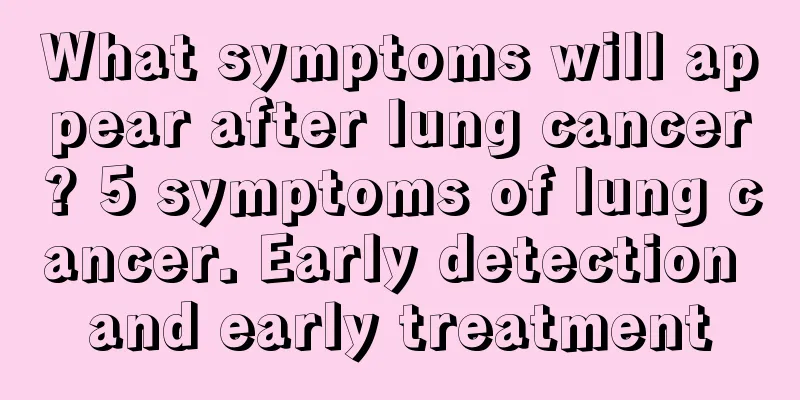What are the symptoms of nasopharyngeal cancer? Seven major symptoms of nasopharyngeal cancer

|
What are the symptoms of nasopharyngeal cancer? Nasopharyngeal carcinoma is one of the most common tumors in my country. The incidence rate in men is 2 to 3 times that in women, and the high-incidence age group is 40 to 50 years old. It often occurs in the pharyngeal recess and the anterior wall of the nasopharynx. The lesions can be nodular, ulcerative, submucosal infiltrating, and other forms. What are the symptoms of nasopharyngeal cancer? Seven symptoms of nasopharyngeal cancer: 1. Nose bleeding. Blood in the nasal discharge is often a sign of nasopharyngeal cancer. 2. Unilateral nasal congestion. It is not obvious in the early stage, but becomes progressively worse as the tumor grows. It is different from a cold, which manifests as unilateral nasal congestion and is ineffective against cold treatment. 3. Symptoms in one ear. The tumor tissue grows larger and invades the Eustachian tube, which can cause otitis media, ear pain, tinnitus, and hearing loss. If the pharyngeal opening of the Eustachian tube is compressed, the pressure difference between the inside and outside of the tympanic cavity will increase, which can aggravate the tinnitus symptoms. 4. Migraine. This occurs in about 1/3 of patients. The headache is severe and fixed in location, and is ineffective with analgesics. The headache is caused by cancer tissue invading or compressing cranial nerves. 5. Unilateral facial paralysis. Nasopharyngeal carcinoma may invade the cranial nerves, which may also cause facial paralysis, decreased vision in the affected eye, or diplopia. These symptoms are sometimes the main complaints of some patients at the first visit. 6. Neck lumps. According to statistics, about 80% of patients have lymph node metastasis behind the clavicle and below the earlobe. The lumps grow rapidly and may be asymptomatic. They can move at first, but then become adhered and fixed in a short time. 7. Nasopharyngeal carcinoma may also metastasize to distant parts such as the liver, lungs, and bones, causing symptoms in the corresponding parts. |
<<: Three screening items for nasopharyngeal carcinoma
>>: What is D2 radical gastrectomy for gastric cancer
Recommend
What are the prescriptions for treating high blood pressure?
Hypertension is one of the most common diseases n...
The role of human lubricant
I believe we are still relatively unfamiliar with...
Are there any risks in having surgery for thyroid cysts?
Thyroid cyst is a disease that is currently causi...
Focus on three parts of your body when "covering" in early spring
Although it is spring now, the temperature change...
Can eating ginger nourish the kidneys? How to eat?
Ginger is an essential condiment and medicine in ...
What does a positive hepatitis C antibody mean
Many friends think they have hepatitis C when the...
How long can one live with sequelae of myocarditis
Nowadays, many people suffer from heart diseases....
Is Rubescens rubescens effective in treating pharyngitis?
Pharyngitis is usually treated with medication. I...
What are the things to drink for tea
When it comes to brewing tea, everyone likes it v...
What to do if the sore on the butt is itchy
Skin diseases generally do not easily appear on t...
What are some effective treatments for rheumatoid arthritis?
The epidemics referred to in today's society ...
Can Hamartoma be Prevented
Can hamartoma be prevented? This is a question th...
What are the effects and functions of brown sugar mask
The cost-effectiveness of the brown sugar mask is...
How to prevent and treat macular edema?
Many people may not know that there is an area in...
How to treat a bad temper and irritability
Because of the different growing environments, ev...









